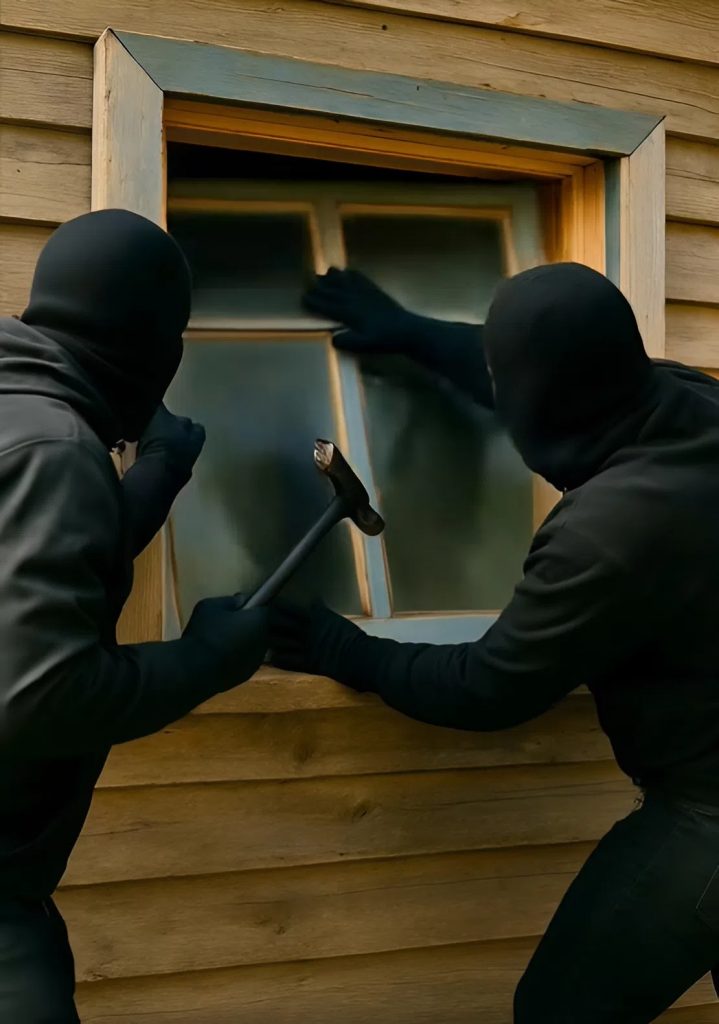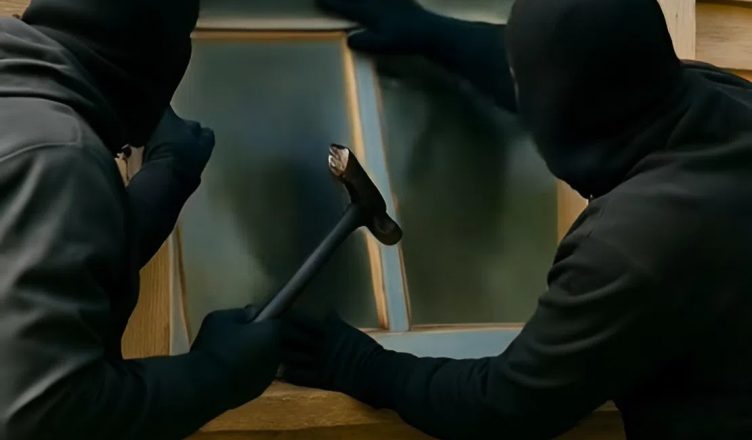On the outskirts of a quiet provincial town stood an old, crumbling house—peeling paint, sagging curtains, and a rusted gate that creaked with the wind. Inside lived a woman everyone simply called Aunt Vera. No one knew her real age, and few really cared to ask. She rarely left her house, didn’t speak to the neighbors much, went to the store early in the morning, and then disappeared behind her door again for days.
Local teenagers whispered she might be a witch. Others said she had survived everything—war, famine, even the loss of her husband. But one thing was certain: she had no family around.
And that was precisely why her house caught the attention of two “professional” criminals.
They weren’t interested in ghost stories. They worked a simple routine—find a quiet target, gather intel, wait for the right time. Gossip from a talkative neighbor gave them what they needed: Aunt Vera’s son lived abroad and sent her money regularly. She didn’t trust banks and kept the cash hidden at home—under her mattress, they said.
It sounded like the perfect job.
The criminals started watching. Anton took photos and logged routines. Sergei lingered near the gas station, eavesdropping. Within days, they had a full profile: she left the house at 7:40 a.m. sharp, came back fifteen minutes later, and the door’s lock hadn’t been changed in decades. No alarm system. No cameras.
They chose a moonless night. Dressed in black, with gloves and flashlights, they approached the house through the garden. Just as their recon had suggested, one of the old windows was slightly ajar. A gentle push, and it creaked open.
Anton climbed in first.
The air inside smelled like incense and dried herbs. The room was modest—an old couch, lace doilies, a photograph of a man in uniform. But just as he set one foot on the floor, something lunged out of the darkness with terrifying force.
The screams shattered the silence.
A dog. Massive, black, with a scarred ear and glowing eyes. Not a bark—a roar. Not a nip—an attack.
The beast dragged Anton fully inside before Sergei could react. He grabbed Anton’s arm, trying to pull him back out the window—but now the dog was on him too, jaws clamped onto his shoulder.
The house flooded with light.
Standing at the doorway was Aunt Vera. Calm, composed, dressed in a bathrobe, holding an oil lamp in one hand… and a shotgun in the other.
She didn’t shout. She simply said:
— «I was expecting you.»

It turned out Vera was far from helpless. Her son really did live abroad—but he wasn’t just sending money. He was a former officer and had insisted on installing hidden security systems in the house. He also arranged for his mother to have a trained combat dog named Rex.
But Vera had gone a step further. Months earlier, she’d noticed strange men lingering around the neighborhood. She didn’t panic. She prepared. Rex was moved into the house. Surveillance cameras were camouflaged. And the shotgun? Her late husband’s. Loaded—with rock salt.
When the police arrived, both intruders were lying on the floor: one with a shredded coat, the other bleeding and writhing in pain from a dislocated arm.
They were charged with attempted burglary and unlawful entry.
As for Aunt Vera? She smiled and told the officer:
— «Old age doesn’t mean weakness. It means experience.»
The next day, the neighbors surrounded her house with casseroles, pie, and offers of help. People who had ignored her for years now looked at her with awe—and a bit of fear.
That old woman they thought was just a recluse had protected her home with the precision of a soldier and the heart of a lion.
From that day on, a new sign appeared on her gate:
“Warning: There’s more than just a sweet old lady in this house.”
And no one ever tried to test that message again.
